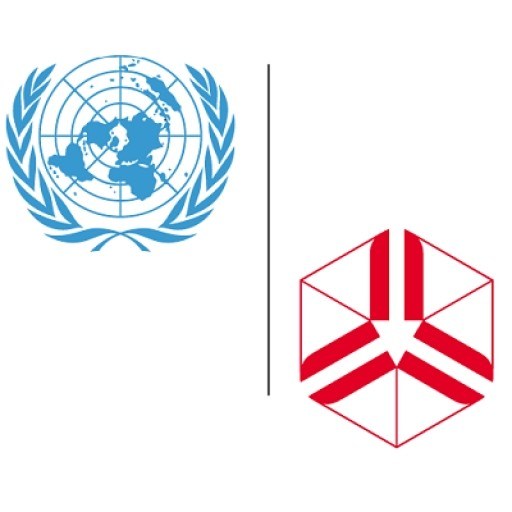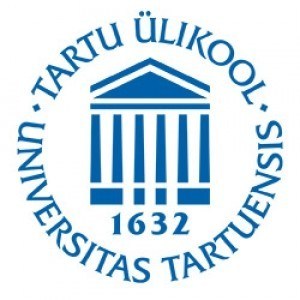Photos of university / #universityofleeds
This postgraduate program offers advanced training in the characterization of flocculated waste suspensions using acoustic backscatter techniques. Designed for graduates in engineering, environmental science, and related fields, the program provides in-depth knowledge of solid-liquid separation processes, waste management, and acoustic measurement methodologies. Students will explore the fundamental principles of acoustic backscatter and its application in analyzing complex suspensions, with an emphasis on developing practical skills necessary for research and industry applications. The curriculum integrates theoretical coursework with hands-on laboratory experiments, including calibration procedures, signal processing, and data analysis to accurately quantify floc size, density, and stability within waste suspensions. Throughout the program, students will engage in supervised research projects targeting real-world challenges in wastewater treatment, mining effluent management, and environmental monitoring. The program is delivered by leading experts at the University of Leeds, whose research focuses on fluid mechanics, environmental engineering, and acoustic technologies. Graduates will be well-equipped to pursue careers in academia, industry, or consultancy, contributing innovative solutions to wastewater management issues and advancing the understanding of suspension dynamics using cutting-edge acoustic techniques. The program emphasizes multidisciplinary collaboration, critical thinking, and technical proficiency, preparing students to lead in sectors focused on environmental sustainability, resource recovery, and pollution control. With access to state-of-the-art laboratories and research facilities, students will benefit from a vibrant academic community dedicated to solving pressing environmental challenges through scientific research and technological innovation.
Characterisation of Flocculated Waste Suspensions with Acoustic Backscatter is a comprehensive postgraduate programme offered by the University of Leeds, designed to equip students with advanced knowledge and practical skills in the analysis of complex particle suspensions using acoustic techniques. This course provides an in-depth understanding of the fundamental principles of waste suspension behavior, flocculation processes, and the application of acoustic backscatter methods to characterise these suspensions effectively. Students will explore various aspects of suspensions including sedimentation, aggregation, and stability, alongside modern experimental techniques and data interpretation strategies employed in environmental and industrial contexts. The programme combines theoretical lectures with laboratory sessions, enabling students to acquire hands-on experience in acoustic measurement setups, data acquisition, and processing. Emphasis is placed on developing the ability to design experimental protocols, analyse acoustic scattering data, and interpret results to determine properties such as particle size distribution, concentration, and sedimentation rates. Through coursework and project work, students will also gain skills in scientific communication, report writing, and critical analysis of research findings. The programme prepares graduates for careers in environmental monitoring, waste management, water treatment industries, or further academic research. By bridging fundamental science with practical application, this programme aims to produce highly skilled researchers and industry professionals capable of solving complex problems related to waste suspension characterisation and management using cutting-edge acoustic techniques.
The programme "Characterisation of Flocculated Waste Suspensions with Acoustic Backscatter" at the University of Leeds is designed to provide students with comprehensive knowledge and practical skills in the analysis of complex waste suspensions through advanced acoustic techniques. Entrants are expected to have a strong foundation in chemical, environmental, or mechanical engineering, with an emphasis on fluid mechanics, colloid and surface science, and instrumentation. A good undergraduate degree at a UK 2:1 (or international equivalent) in a relevant discipline is typically required. Applicants should demonstrate proficiency in experimental design, data analysis, and the use of computational tools for modeling and interpreting acoustic backscatter data. Prior research experience or knowledge of waste management processes is advantageous but not mandatory. As part of the programme, students will undertake coursework modules covering fundamentals of suspension rheology, principles of acoustic measurement, and techniques for characterising flocculated systems. Additionally, they will participate in laboratory sessions to gain hands-on experience with state-of-the-art acoustic backscatter devices and software. The programme also emphasizes research methodologies, encouraging students to develop critical thinking and problem-solving skills essential for addressing challenges in waste management and environmental protection sectors. A substantial research project or dissertation forms a core component, requiring students to apply theoretical knowledge to real-world waste characterization problems. The programme aims to prepare graduates for careers in environmental consulting, waste treatment facilities, research institutions, or further academic study. Overall, applicants should demonstrate a commitment to advancing sustainable waste management practices through innovative acoustic measurement techniques, along with strong analytical and technical capabilities.
Financing studies for the Characterisation of Flocculated Waste Suspensions with Acoustic Backscatter program at the University of Leeds are primarily covered through a combination of university scholarships, government-funded research grants, and external funding from industry partners. The University of Leeds offers a range of scholarships for international and domestic students, which can significantly offset tuition fees and living expenses. Prospective students are encouraged to explore scholarships such as the Leeds Research Scholarships and Commonwealth Scholarships, which are awarded based on academic merit and research potential. Additionally, students may apply for departmental funding or teaching assistantships that provide stipends and tuition fee reductions in exchange for research or teaching obligations.
Furthermore, the program benefits from industry-sponsored research projects, which often include financial support for students working on specific aspects of waste suspension characterization and acoustic backscatter analysis. These partnerships facilitate practical training and networking opportunities, while also contributing to the funding pool. Government agencies, such as research councils and environmental bodies, offer grants aimed at advancing sustainable waste management technologies, which can be accessed by students engaged in relevant research.
Students are also encouraged to seek external scholarships offered by international organizations and professional associations related to environmental science, engineering, and acoustics. Funding support for international students varies and may include tuition fee waivers, living stipends, and research funding. To maximize financial aid opportunities, applicants should prepare comprehensive research proposals and demonstrate strong academic achievements. Overall, financing for this specialized program is designed to make advanced research education accessible through diverse funding sources, ensuring that talented students can pursue their interests without undue financial burden.
The "Characterisation of Flocculated Waste Suspensions with Acoustic Backscatter" programme at the University of Leeds is a specialized research initiative focused on understanding the behavior and properties of flocculated waste suspensions through advanced acoustic measurement techniques. This program aims to develop novel methods for characterizing the physical and structural properties of waste suspensions, which are critical in various industrial and environmental processes such as wastewater treatment, mineral processing, and sludge management. By employing acoustic backscatter technology, the research seeks to analyze particle size distribution, floc stability, and sedimentation behavior in real-time, providing insights that can optimize process efficiency and environmental compliance.
The programme integrates multidisciplinary approaches, combining fluid mechanics, acoustics, and materials science to address complex problems associated with waste suspension management. Students and researchers involved in this program undertake comprehensive experimental and theoretical studies, utilizing state-of-the-art acoustic sensors, imaging techniques, and computational modeling. The knowledge gained through this research has the potential to significantly enhance our ability to predict and control the flow and settling characteristics of flocculated suspensions, leading to more sustainable and cost-effective waste management practices.
In addition to laboratory work, the programme includes collaborations with industry partners and environmental agencies, ensuring that research outcomes are practically applicable and aligned with current technological and regulatory requirements. Participants in this programme also have opportunities to publish their findings in peer-reviewed journals, attend international conferences, and contribute to advancements in acoustic measurement and waste characterization technologies.
The programme is typically offered at postgraduate level, including Master's and PhD studies, and is supported by expert faculty members who are specialists in acoustics, environmental engineering, and chemical process engineering. Graduates from this programme are equipped with advanced skills in experimental design, data analysis, and applied acoustics, making them highly valuable in sectors focusing on environmental monitoring, process engineering, and sustainable waste treatment solutions. Overall, the "Characterisation of Flocculated Waste Suspensions with Acoustic Backscatter" programme represents a leading-edge research effort within the University of Leeds that combines scientific innovation with practical applications to address critical environmental and industrial challenges.










